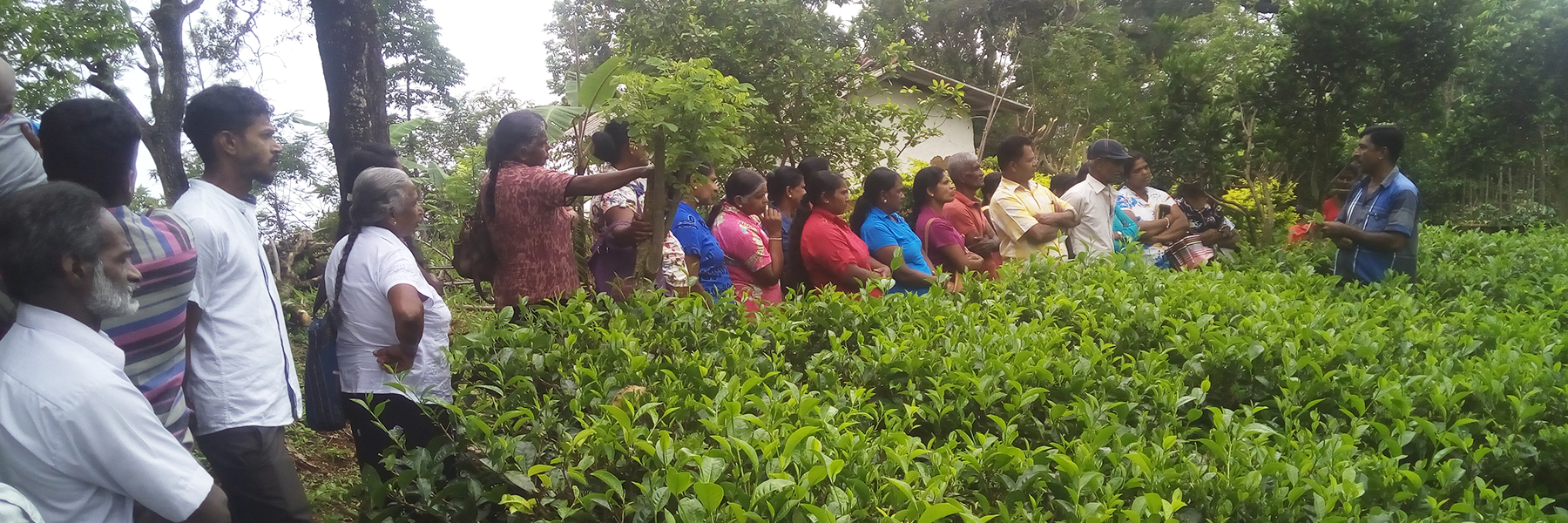Focal Area: Securing community livelihoods and food security against climate change induced rainfall variability
Geographic coverage: Walapane Divisional Secretary Division, Medirigiriya Divisional Secretary Division and Lankapura Divisional Secretary Division
Duration:
Implementing agency: Implemented by the World Food Programme executed by Ministry of Environment in coordination with the Ministry of Agriculture and Ministry of Agrarian Services and Wildlife
Donor/source of funding: UNFCCC Adaptation Fund
Budget: $ 7,989,727
Brief summary of activities and relevance to SLM FAO project:
The overall objective of the project was to secure the livelihoods and food security of communities against climate change-induced rainfall variability which would lead to longer droughts and intense rainfall. The proposed activities of the project were focused on:
- Develop household food security and build resilient livelihoods for rain-fed farming households
- Build institutional capacity in village, local and regional service delivery to reduce risks associated with climate-induced rainfall variability
(Kuruppuarachchi and Munasinghe, 2018)
To realize the above, the project activities were categorized into two components i.e.:
- Developing household food security and building resilient livelihoods for rainfed farming households: this focused on outputs such as the development of diversified home gardens, introducing varieties and agronomic practices, introduce climate resilient alternative income sources, promoting improved post-harvest technologies, building community assets and livelihood resources through cash for work to support climate risk reduction measures.
- Building institutional capacity in village, local, regional service delivery to reduce risks associated with climate induced rainfall variability: the outputs focused on training and mobilizing officers at different geographical scales, Piloting integrated watershed management models in micro-watersheds to safeguard climate sensitive livelihood assets such as land and water, conducting risk assessment and adaptation planning, document and disseminate lessons of climate resilient livelihood development and watershed management approaches and designing early warning systems pertaining to climate induced risks in the Mahaweli basin. (Adaptation Fund, no date)
Although the above outputs are contextualized particularly in response to improving adaptation to climate change, there does appear to be commonalities between what is mentioned above and certain SLM practices such as the use of suitable varieties and adaptive practices to face variability of rainfall. The fact that one of the districts is where the project is taking place is Nuwara Eliya (Walapane Divisional Secretary Division) is also a commonality between this project and the FAO SLM project.
Key lessons which the above project could provide the FAO SLM project are:
- The need to effectively communicate impacts of the fundamental issues which interventions are created for, in this case impacts of climate change.
- The need for follow up at different geographic scales at which project activities are taking place leads to poor understanding of the project.
- Certain practices of projects such as cash for work programmes might face conflicts between administrative processes and implementation teams, these would require pragmatic solutions to be created.
- The need to consider the level of capacity and interest in service delivery mechanisms available locally because it impacts one’s ability to monitor project activities.
- The need to conduct technical studies in the field and following a rational methodology when prioritizing adaptation technologies and matching these to the capacity development needs on the ground.
(Adaptation Fund, no date)

